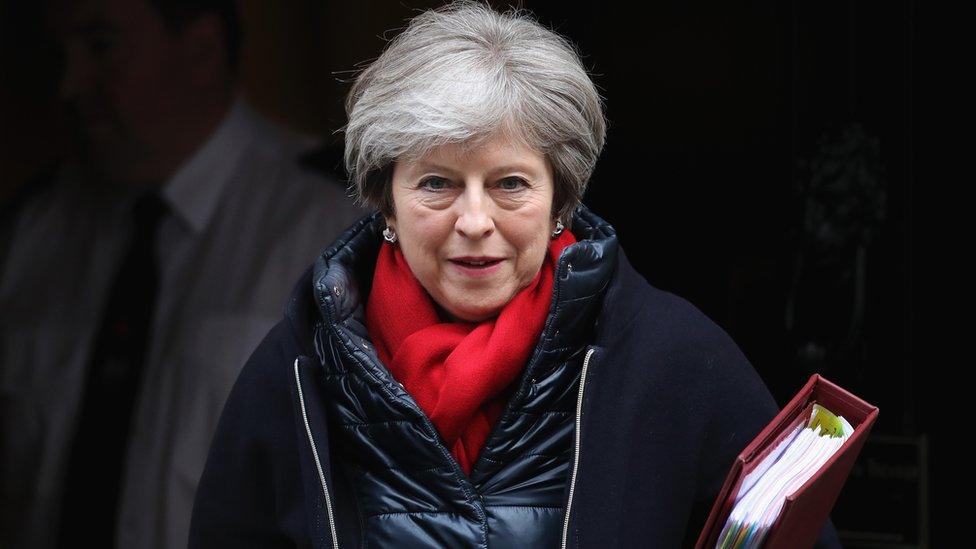Stormont deal could be unveiled 'next week'
- Published
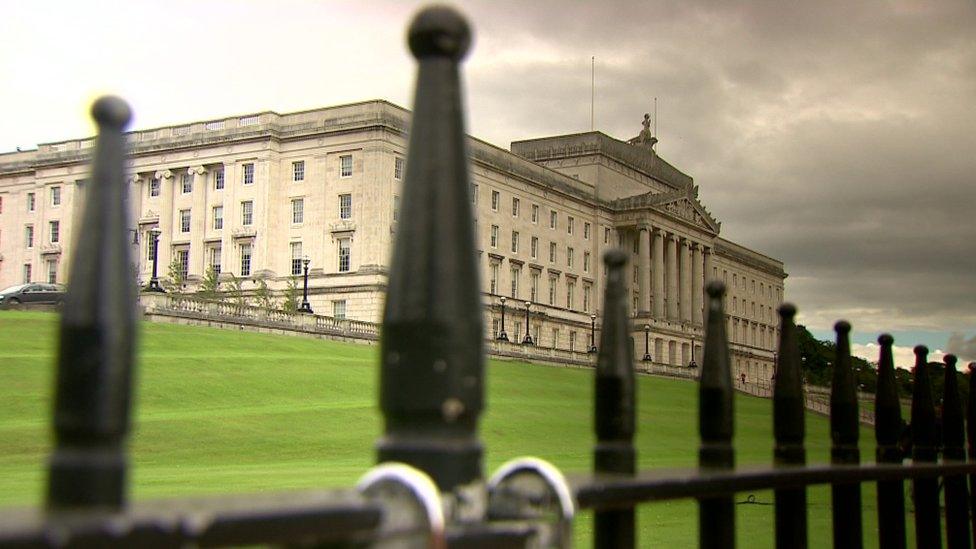
Stormont has been without a devolved government for more than a year
There is growing speculation that a deal to end the year-long political deadlock at Stormont could be unveiled as early as next week.
Northern Ireland's power-sharing executive collapsed amid a bitter row between the DUP and Sinn Féin last January.
On Friday, both parties stayed away from scheduled round-table talks.
Instead, British and Irish ministers met the three smaller parties - Ulster Unionists, SDLP and Alliance.
The politicians were told by Northern Ireland Office officials that the discussions involving the DUP and Sinn Féin are at "a critical stage".
It is understood that the DUP leader, Arlene Foster, has been meeting Sinn Féin's Michelle O'Neill and incoming party president Mary Lou McDonald elsewhere in Stormont's Parliament Buildings.
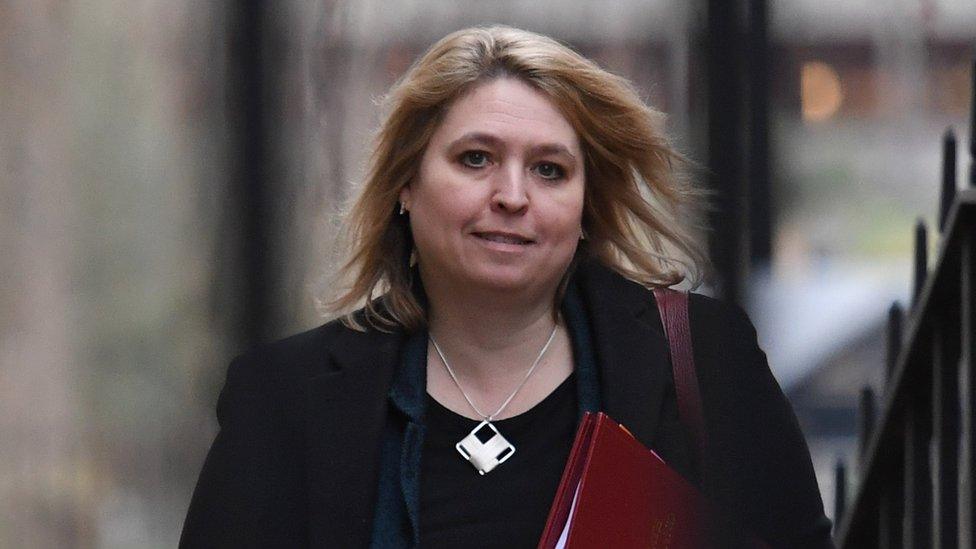
Karen Bradley is the secretary of state for Northern Ireland
The new Sinn Féin leadership is due to take over from Gerry Adams at the weekend, and some sources believe the parties might feel ready to move forward after that transition has been completed.
Whilst the outline of an agreement is thought to be in place, neither of the two big parties have yet signed up.
One informed source suggested that some DUP MPs have yet to be convinced.
'Last chance'
In a statement on Friday night, the DUP leader said "progress has been made" but added that there was "more work to do".
"I have set out the parameters for a deal. It must be fair and balanced," Mrs Foster added.
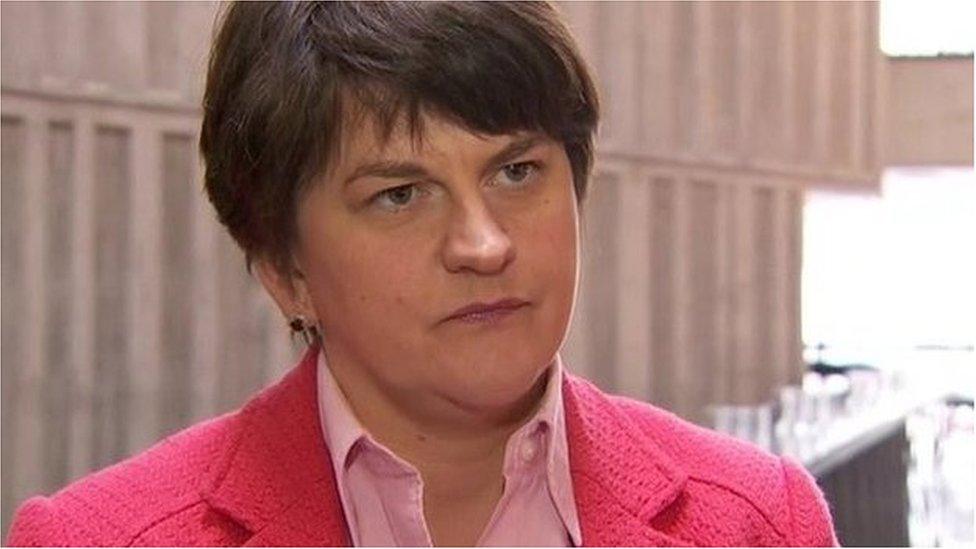
It is understood Arlene Foster has been meeting with Michelle O'Neill and Mary Lou McDonald
"Our negotiating team will continue working next week. I want to see ministerial-led government restored to Northern Ireland.
"I hope that can be achieved by devolved government and will work towards that end."
On his last night as leader of Sinn Féin, the outgoing party president Gerry Adams said: "It isn't sorted out as we speak.
"We have made some progress but there are still considerable obstacles but as I said to our unionist friends, this is the last chance agreement."
Both the DUP and Sinn Féin have previously said that the talks process cannot continue indefinitely.
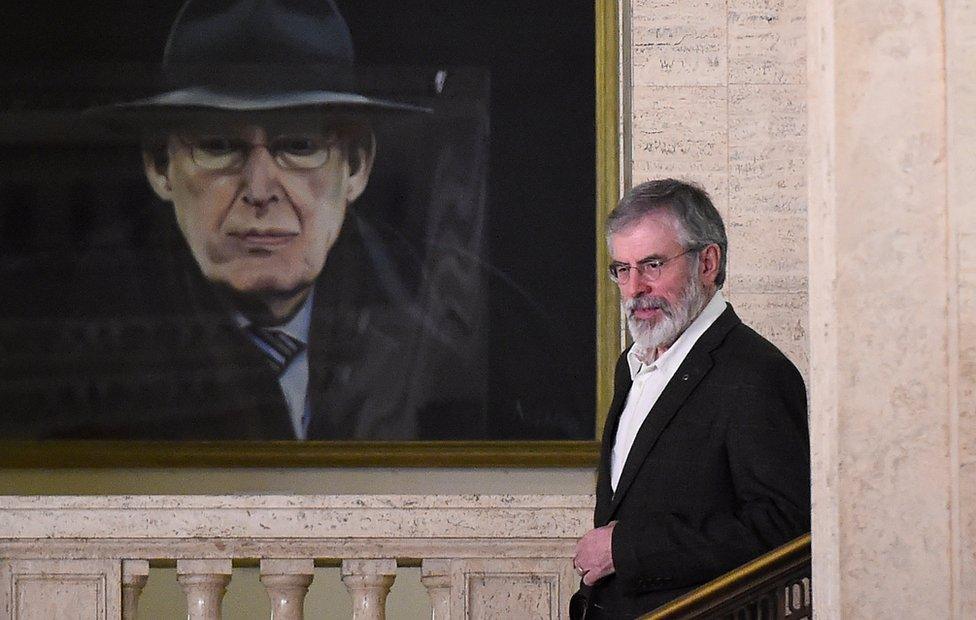
Gerry Adams was pictured leaving Stormont on his last night as leader of Sinn Féin
The smaller parties expressed their frustration at the fact that not all the five parties attended Friday's talks.
'Window dressing'
The SDLP leader, Colum Eastwood, told the two governments: "You've got my number, give me a call when something is happening."
In a later statement, he said: "The truth is, this isn't an all-party process. It is an exclusive two-party process.
"The SDLP are not here to window dress but we want to be constructive. I've told both governments when the two-party process is concluded and they are ready to engage in five-party negotiations the SDLP will be ready to negotiate."
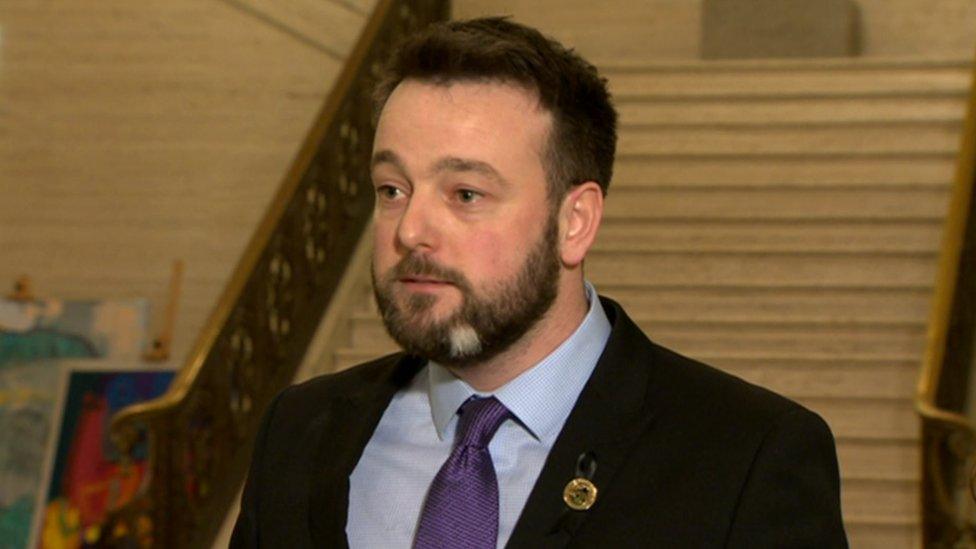
Colum Eastwood told the governments to give him a call when something is happening
Meanwhile, an Ulster Unionist source said the Secretary of State, Karen Bradley, told them: "I feel your frustration".
It is understood the UUP leader, Robin Swann, replied: "I am not here for a counselling session. I am here to get a government up and running".
PMs could come to NI
Earlier, it emerged that the prime minister has been considering flying over to Belfast next week if that will help the talks.
Last month, the taoiseach (Irish prime minister) Leo Varadkar said both he and Theresa May were happy to get engaged personally, if they thought it would make a difference.
The details of any potential deal remain unclear.
It is thought the parties have been examining how to resolve their differences over Irish language legislation.
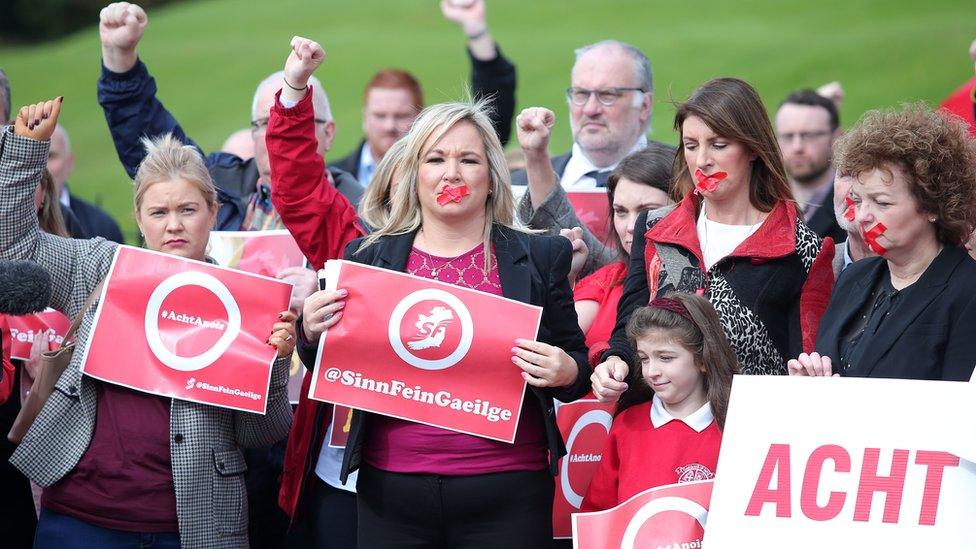
Sinn Féin wants an Irish language act but the DUP is opposed to that demand
DUP negotiators are understood to be keen to ensure there should be no repeat of last year's breakdown of devolution.
They have suggested that some way to make the Stormont institutions more sustainable should be introduced.
There has also been discussion of changes to the operation of the assembly's controversial "petition of concern" system, which was designed to safeguard minorities but has been used to block a number of measures.
Earlier this week, the government rejected a suggestion from Labour that the issue of same sex marriage should be taken off the talks agenda and dealt with directly via Westminster legislation.
However, some sources suggest the idea could be altered so that Westminster might take over the issue if the assembly can not deal with it within a set period of time.
- Published16 January 2017
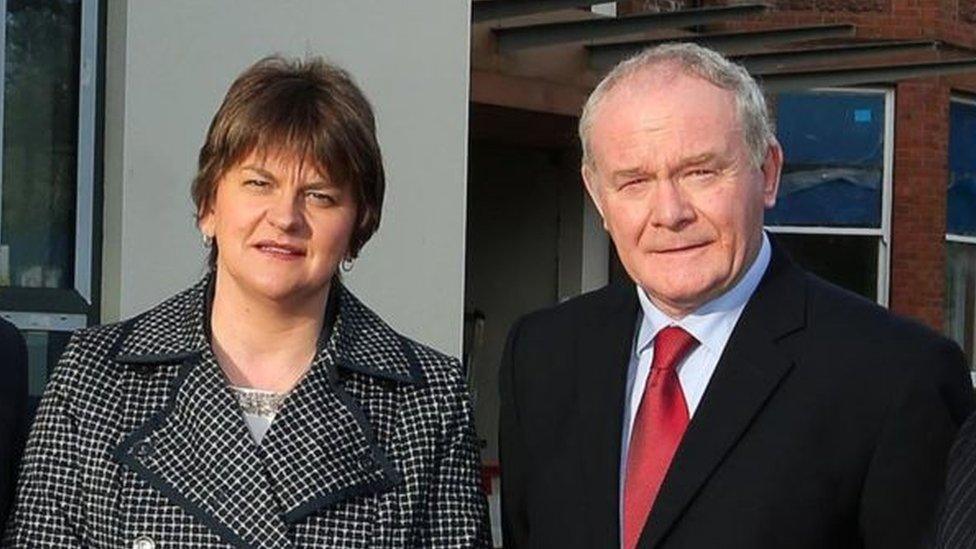
- Published9 February 2018
